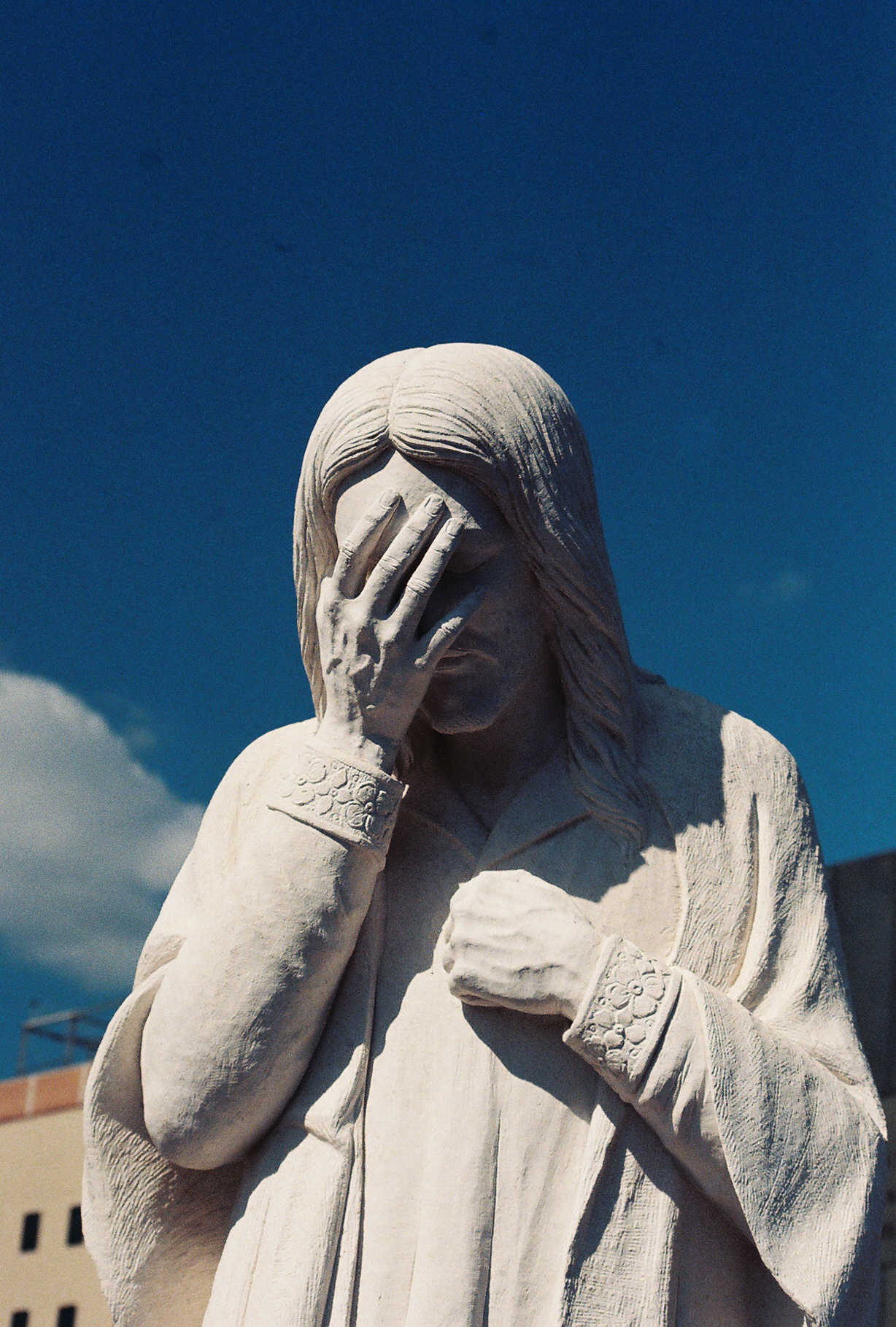One of my daily struggles is trying to decide what creative pursuits I’ll spend my time on. And believe me when I say there’s no shortage of creative things the right side of my brain is telling me to do.
But just because I can do something doesn’t mean it’s necessary. In fact, more often than not, it takes time away from more important things I need to do.
Ultimately, this deals with my subconscious mind: what’s been called “The Drunk Monkey” mind. Most people’s subconscious mind operates in two modes: keeping you alive by avoiding danger, and keeping you alive by seeking out big game to hunt.
I heard a story about a young woman who was recently killed while standing around at a highway rest stop by a rogue flying 18-wheeler tire. Just standing there, and WHAM! Truck tire in the face. Dead. My subconscious- my “drunk monkey mind”- says “Great! Now every time you’re near a highway you have to look for flying tires.” It is desperately afraid of everything. This is the “avoiding danger” part of the monkey. It’s trying to keep me alive despite my best efforts to live.
The other part of the subconscious- the flip side of the Drunk Monkey coin- forces us to seek out big prey, like hunters. In fact, it’s this “hunter” drive that is the basis for things like ADHD. We’re hard-wired to seek out adventure: it overrides our “safety monkey” and goads us into exploration, adventure, and sometimes, danger.
Now, with most people, their “safety monkey” is firmly in control, and they aren’t interested in the least with adventure. They’re never in a place where the “hunter monkey” takes over. Most people are severely risk-averse, and I understand that. It doesn’t go away. My “safety monkey” mind is still there, and speaks often. (Usually it’s too little, too late.)
But the rest of us are driven by crippling doubts and the desire to find excitement. In the old days, this was what kept people alive by making them chase after and hunt woolly mammoths, and so forth. Their desire for safety was overridden by their need for immediate survival. For instance, the first guy who ever caught and ate an alligator must have been really hungry. The “hunter monkey” can be extremely powerful.
Somewhere deep in my psyche, I’m still driven to find woolly mammoths to hunt. And there aren’t any, so I feel driven to seek out “big game” to conquer to justify my existence and satisfy my subconscious.
In reality, listening to your subconscious isn’t the best way to follow God. I’m not talking about common sense “I shouldn’t stick a fork in an electric outlet” kind of thing. I’m talking about “I shouldn’t become an electrician because it’s inherently dangerous” kind of thinking. That’s your Drunk Monkey mind talking. That’s giving in to irrational fears, and shows a lack of trust in God. At its root, it’s listening to your flesh, not listening to God.
In the same vein, listening to your “hunter monkey” mind isn’t trusting in God either. It says “You’ve got to dream big and dangerous in order to be successful (survive)!” But this shows a lack of trust in God as well- that God won’t meet our needs, and we have to go chase after them in our own strength.
I could go into a whole tangent about where these “drunk monkey” voices come from, and how Satan can manipulate them- but for now, let’s focus on how to deal with it.
When Paul says in 1 Corinthians 10:23 (NLT):
You say, “I am allowed to do anything”–but not everything is good for you. You say, “I am allowed to do anything”–but not everything is beneficial.
He’s speaking to me. And not just about eating meat from pagan temples: this applies to every area of my life.
I’ve written before about FOMO and its effects on my well-being. Well, the struggle doesn’t end. I’m going to be 45 this summer, and FOMO hits harder now than it did when I was 35. The Monkey doesn’t go away; you just learn to recognize it.
I want to write novels. I want to record albums. I want to rebuild my car. I want to ride my bike. I want to start a diet- get in shape- and take over the world. I want to do all the things. But I can’t. And I can feel the years tick-tocking by. I can hear the monkey screeching in my mind.
Not everything I can do is beneficial. Sure, I could forego sleep and crank out another novel. That’s not really helpful to the other areas of my life. I could spend 2 hours a day exercising. That’s not really conducive to a healthy prayer life. I could spend time and money getting my old car running, but that does nothing for my family.
What I’m saying is: most things we want to do are beneficial in very specific, very limited ways. Some have more than one benefit (like exercise), but everything costs something. There is always a counteractive drawback, even if it’s just time spent. As a family man, everything I do affects everyone else in the family in some way.
Sometimes I wish things were simple, and I could just pile on the things I want to do without consequences. Even if I don’t count the other negatives, I just don’t have the time. But even then, even if I did have the time, it doesn’t mean I should.
Is everything permissible? Sure. Is everything beneficial? No.
I think Paul understood this. He knew we would make choices. He knew we’d be tempted by our flesh, and by everything around us. He knew his purpose, and he had learned to let everything else go.
They key to resisting the Drunk Monkey is to recognize its voice. When you hear those irrational fears, or crazy flights of fancy, you see it for what it is: a biological/psychological reaction, which has no bearing on reality. We hear it, we recognize it, and we decide whether or not it has merit. More often than not, it doesn’t.
There’s more to following God than stoicism, of course. But learning to curb our subconscious minds- the “drunk monkey” mind- will allow us to focus and listen to God’s true voice, spoken through the Holy Spirit and the Word. And it gives Satan one less place to attack us.

